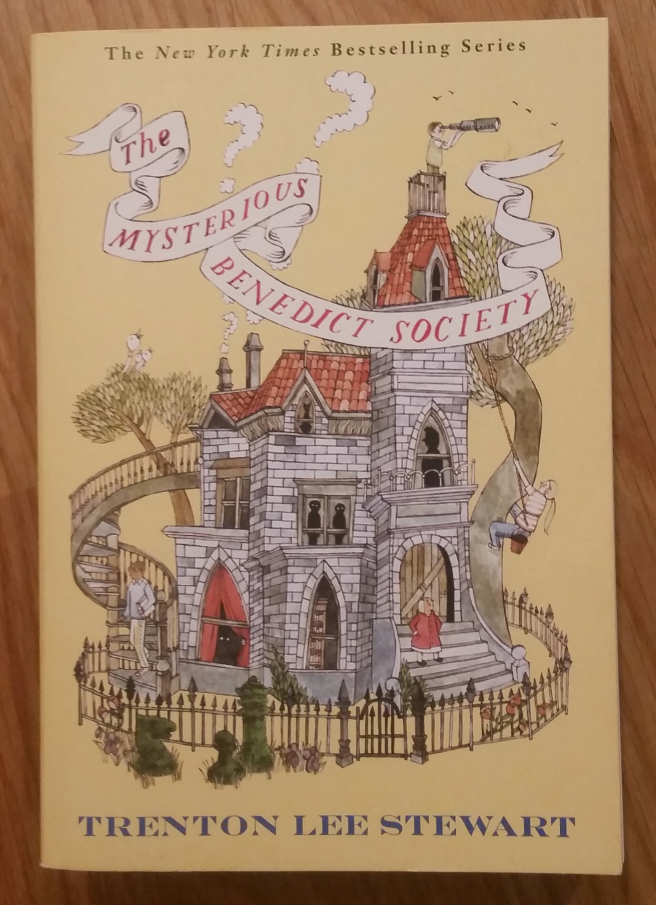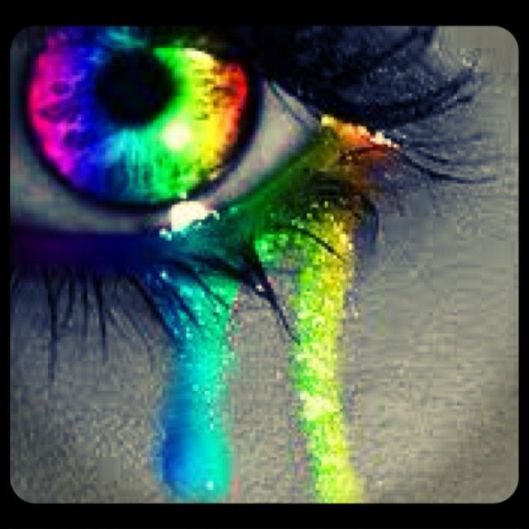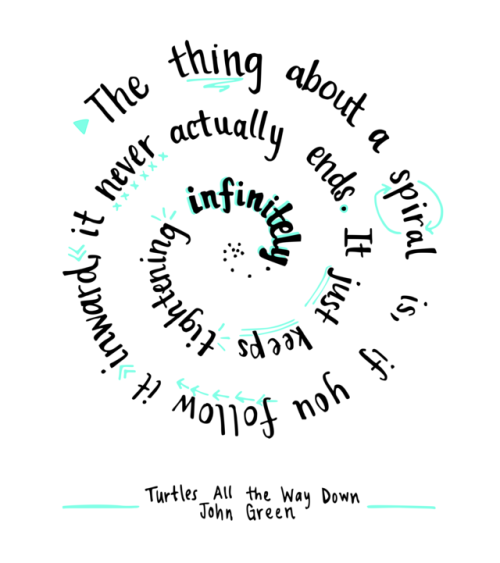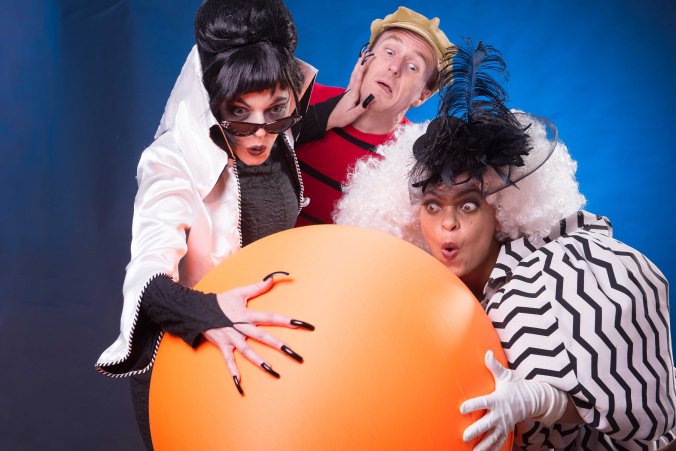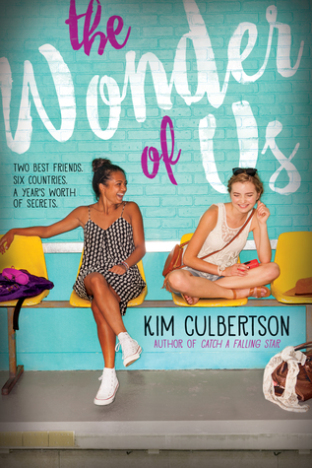
Like most people who like fantasy, I’m also a major fan of its sister genres (parent genres?) mythology and folklore. Myth today colors much of contemporary fiction, and it’s always interesting to learn how the original plays out before seeing the gay crossover space opera modernization.* Plus, fairytales are a weird experience, all around. Compared to contemporary protagonists, fairytale characters can seem weirdly flat, archetypes of “The Prince” and “The Mentor” who eternally slay the dragon and save the princess with only stock reasons given as rationale. There’s something old and odd about fairytales and myths, the ritualized nature of the conflicts and characters in them, and that same strangeness is what makes these stories so fascinating. There’s an elegant economy to fairy tales, a cohesion in the way they wrap together that gives them their own, particular brand of pleasure.
So when Marlon James of Man Booker Prize winner A Brief History of Seven Killings described Victor LaValle’s The Changeling as “a dark fairy tale of New York” and NPR’s Amal El-Mohtar gave it a glowing review complete with unnecessary but somehow charming metaphor about the Pleiades—well. Of course I had to read it.
And for roughly two-thirds of the book, everything was fantastic. The opening chapters set us up with a complex cast of characters, laying out their histories in the neat, concise manner that seems almost a requirement in certain lit fic. Lillian Kagwa, an Ugandan immigrant who moves to America after watching her cousin get shot by military thugs; Brian West, the parole officer from a broken family who falls in love with her; and between the two of them, our protagonist, Apollo Kagwa, a bookish boy who eventually forgoes college to pursue a career as a rare book dealer. At age thirty-four, Apollo meets librarian Emma Valentine; the two strike up a relationship and—as the book’s subsections helpfully remind—first comes love, then marriage, then baby Brian Kagwa’s birth on a stopped MTA train. And this, as the title of The Changeling should have clued you into, is where the plot starts kicking in.
Apollo loves Brian immediately, and LaValle renders his new fatherly delight in lovely descriptions about New Fathers who, in opposition to Authoritative and Distant 1950s dads, cook 35% of the time and strap on Babybjörns to carry their children around. Apollo takes Brian to the park to talk with other New Fathers; Apollo takes Brian to work; Apollo takes twelve photos of Brian and posts them on Facebook all at once, to the general consternation of all his childless friends. Apollo takes to parenthood immediately, and it’s beautiful to watch.
Emma doesn’t. And if you know anything about changeling folklore, you should probably know where this story is going.
So. That’s the first third of the novel. To skirt the issue of spoilers, I won’t get too far into the next third or so of the novel, except to say that it deals more directly with said changeling folklore and the repercussions of what, exactly, people do in response to thinking their child has been kidnapped by fae. This is a distinct shift from the first third of the book, which mostly sticks to realism, with only hints of the supernatural lurking at the edges, but it’s not a bad shift; LaValle’s not going a 180 so much as he is delivering on previous promises, actualizing the hints he’d set up in the first third of the book. Emma is mostly absent from this section of the book, but LaValle fills in her absence with a bevy of interesting side characters; I especially liked the increased attention given to Patrice, a war vet and Apollo’s semi-partner in the black bookseller business, and his awkward attempts to provide emotional support for his best friend. The fantastical elements are still in the background and they’re suitable spooky when they show up, but (and I can’t believe that I, the poster child for “take your genre fiction snobbery out of here or fight me,” am saying this right now) for me, it’s mostly the smaller, more mundane moments that stand out. LaValle is good at giving us spooky hidden islands and witchcraft conspiracies, but he’s excellent at just observing, at scooping up and presenting us with observations about Zipcar and Uber and all the other small modern conveniences of living in New York City in 2017.
The third act of the book, unfortunately, is where everything starts falling apart.
If the first two-thirds of the book was unrushed and meditative, the last third seems to be written with the panicked realization of oh shit, we should probably resolve some of these plot threads, shouldn’t we? So instead of using all the clues scattered prior and tying them up into a suitably coherent package, LaValle goes the route of throwing new plot points and information at us. Here, take some revelations about the ~real reason~ for Brian West’s disappearance! Have some Norwegian mythology! And hell, while we’re at it, let’s toss in the 2017 version of a snuff cam while we’re at it, because those are incredibly profitable, right? Bitcoin is still viable currency and not the millennial equivalent of investing stock in Beanie Babies, right? Last-minute twists don’t necessarily doom a story—it worked at least once for M Night Shyamalan—but compared with the steady pace of the rest of the book and the thematic incoherency said twists introduce, they just don’t work here. The fast pace and the heavy rate of revelation mean the last fourth of the book goes by pretty quickly, but I’m left wishing LaValle had provided us with more satisfying answers to the questions set up.
And, with all that said and done, perhaps this is more of a personal issue, mismatched expectations or whatever, but I’m just not entirely onboard with LaValle’s particular take on the changeling myth. Maybe it’s because I’m not a parent or at the very least not the type of person who believes in the nuclear family trope of one man and one woman and their biological offspring, but I’ve never been particularly bothered by the fear that my child, in fact, may not mine. The idea that the mere presence of a genetic link makes someone so much easier to love than someone with no direct kinship to you—I find that complete bullshit, the sort of “oh but of course you’ll want a child when you’re older” crap that is used to reduce people to meatbags of hormones and biological imperatives. It shouldn’t matter if your kid was switched at birth with another kid or fairy or ridiculously humanoid alien; if you raised them and loved them, they’re your kid.
Or maybe my reluctance to buy into LaValle’s version of changelings is because I’ve read the Wikipedia entry on changelings and so I know how this particular story has played out through history The changeling is a popular and fascinating myth and, if done, can be properly creepy—look at the cuckoo, pushing its siblings out of the nest to survive! That’s fucking creepy!—but the trope is also indelibly tied to real-world fear of “wrongness,” whether that be autism or albinism or just, you know, being slightly different from everyone else in your small Catholic Irish village. Historically, the fear of changeling has been a fear of otherness, and that’s a fear people have been killed for. To his credit, LaValle lets Apollo emphasize with the fae creatures he encounters and, in the end, you could even conclude that it’s the humans enabling their behavior who act more monstrously than the supernatural creatures following basic biological imperatives. But there’s still the central fact of the changeling as other, something off and thus to be feared, and there’s still the central historical fact that people have died because of this fear.
I don’t know. Maybe my judgment is premature, the anxieties mentioned something you apparently can’t get unless you’re a parent yourself. Rosemary’s Baby gave us creepy children, as did Eraserhead as did The Omen as did a whole slew of films that employ the creepy child trope to full effect. Apparently the fear that your child is, in fact, supernaturally evil as opposed to just a normal jackass toddler is really common and that’s something that I, as a non-parent, will never understand.
Still, when I think of creepy children/changelings in fiction, I find my thoughts continuously turning towards Neil Gaiman and Terry Pratchett’s Good Omens and the character of Adam Young. Or, if you want to be technical, The Adversary, Destroyer of Kings, Angel of the Bottomless Pit, Great Beast that is called Dragon, Prince of This World, Father of Lies, Spawn of Satan, and Lord of Darkness. Adam Young is the Antichrist, switched at birth with another human baby (which, in a long chain of incompetence, gets switched around with yet another human baby in the worst game of “which cup is the coin under” ever), and throughout the book, our protagonist angel-and-devil duo are pissing themselves with fear that he’s going to go around and start Ragnaroking everything, because fuck, kid’s the Antichrist, isn’t he? And he is, a fact that becomes increasingly obvious as the seas begin to rise and leviathans rise from the depths, but he’s also Adam Young, an eleven-year-old boy who’s been raised as one. Adam plays hooky and steals apples, but he’s not evil; he might have the powers of The Adversary, Destroyer of Kings, Angel of the Bottomless Pit, etc, but that doesn’t mean he have to be him. Nurture, not nature and all that jazz.
So. Is The Changeling a good book? Most of it, yes. Going back to the NPR review, and I have to agree with a lot of El-Mohtar’s points re: the genuine portrayals of black parenting, the multifaceted nature of the book, etc (though why El-Mohtar disliked Apollo is beyond me, as I found his actions to all the crazy shit going down around him perfectly reasonable). But the last fourth of this book—wow, it just did not work for me. It’s necessary to read, as it does tie up the plot points set up in the previous two-thirds, but it’s also unsatisfying in a way that makes you want to pretend it doesn’t exist, much the way fans treat the epilogue from Harry Potter or the live-action Avatar: The Last Airbender movie (the what?) It’s not quick as egregiously awful as the latter, but it is a significant mar on an otherwise well-constructed book and that, I think, is enough for you to forget about it.
*Which is not, of course, to say anything about the gay crossover space opera modernization, which will frequently do a better job with sexuality and treatment of female characters AHEM X-Men writers thanks for the forced loved interests even when they weren’t so great? This tastes like bait, but okay—
Advertisements Share this: